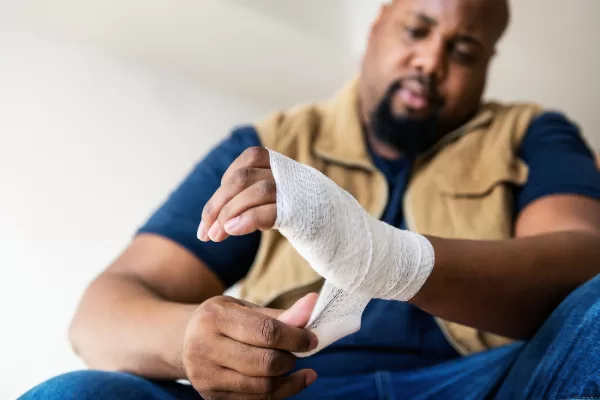
Beneath the Rubble: Survival Tips After an Earthquake
January 31, 2024 by
jngijamaica
Being trapped under a collapsed building following an earthquake is frightening and dangerous considering that you are facing a life-and-death situation and you do not know for how long you will be there. Rescue operations usually begin right after a major earthquake. However, there are times when rescue will take much longer depending on the magnitude of the destruction.
Clive Mohalland, master trainer and Senior First Aid Instructor at St John Ambulance Jamaica, maintains that with adequate knowledge, victims can significantly increase their likelihood of survival.
Here are some survival tips that he provides should you ever find yourself in such an ordeal:
Remain Calm
It is natural for persons to get hysterical in such an emergency. People around you, especially infants, may be screaming and making a lot of noise. Make a conscious effort to stay calm so you can think more clearly and conserve energy. Remaining calm can also have a positive influence on the emotional state of others and contribute significantly to a collective effort to endure the crisis while awaiting rescue.
Assess Your Surroundings
Look out for potential dangers such as sharp objects that can cause injury. Avoid unnecessary movement, as it may cause debris to dislodge and become a risk to you. If you can move debris without causing further harm, attempt to do so cautiously, engaging the help of others around you. Check to find out if anyone is seriously injured and offer any assistance you can give.
Signal for Help
If you have a working mobile phone, call persons to alert them of your location. If you are with others, coordinate efforts to get the attention of rescuers such as synchronised shouting, banging or using flashlights from cell phones if it is nighttime. Listen for voices, footsteps, or other signs of rescue efforts. Carefully follow the instructions of rescuers.
Reduce Respiratory Stress
Dust can be harmful to your respiratory system and trigger an allergic reaction. Cover your nose and mouth with a handkerchief or a piece of clothing to protect yourself from dust. If you have access to water, wet the cloth to reduce inhalation of dust. Persons with asthma should sit up and do deep breathing.
Deal with Wounds Safely
For moderate to severe bleeding, apply direct pressure on the wound using a clean cloth or clothing if available. If the bleeding continues, apply indirect pressure by wrapping fabric above the wound. Additionally, elevate the injured limb to reduce bleeding. If the wound is dirty, clean it with water, if available, to prevent infection but don’t pour too much water as it will cause the bleeding to linger.
Stay Hydrated
If you have access to water, drink small amounts to stay hydrated and to make your water supply last. Share water, food and any other supplies with others who are with you. This act of kindness can help to reduce the likelihood of others dying which can have serious effects on your mental health. If the time is cold, huddle together to keep warm.
Be Patient
Rescue operations may take time so be patient while waiting for help. If you have a watch or a cell phone, keep track of time and passing days if your rescue operation takes a long time. Maintain a positive mindset and focus on the fact that rescuers are actively working to find and assist survivors.
Your primary goal is to stay alive and make it easier for rescuers to locate and assist you.

